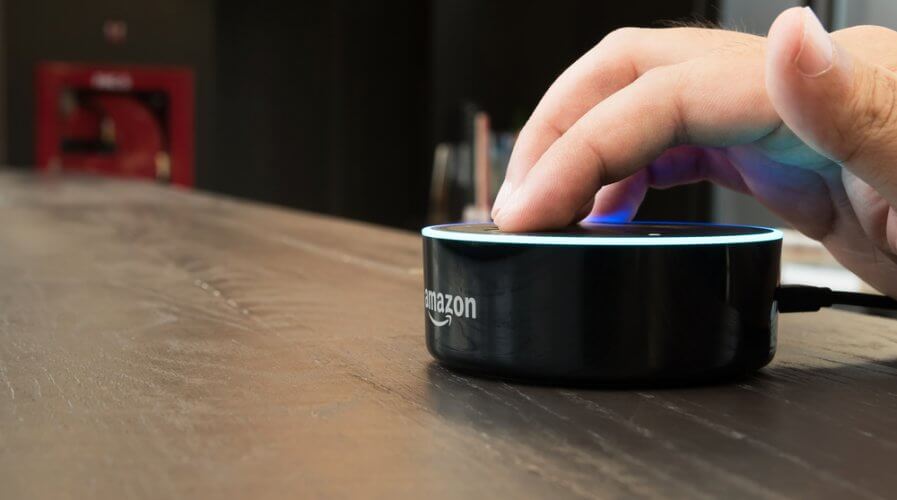
Amazon’s Echo devices currently dominate the smart speaker category thanks to the advanced development of its assistant Alexa. Source: Shutterstock
You can now have Amazon’s Alexa in your workplace
CONVERSATIONAL artificial intelligence (AI) is increasingly transforming how humans interact with technology. From the 2011 smartphone operating system, Siri, to the now more native forms of the technology, “virtual assistants” are becoming integral parts of the lives of many users.
Devices such as Amazon’s Alexa, Apple’s Siri, Microsoft’s Cortana, and Google Assistant have now become household names. These voice-activated helpers enable users to perform tasks such as sending a hands-free text, play music with the command of one word, or order takeout without having to lift a finger.
But as well as these novelties, virtual assistants can also bring plenty of value to many scenarios in the business setting.
Last week, Amazon announced plans for an Alexa for Business Platform where new tools will be introduced to use Amazon’s Alexa voice-activated virtual assistant in the workplace. The goal seems to be to make Alexa a key tool for office workers.
One of the main focuses for Alexa for Business is ‘simplifying the conference room’. In a nutshell, Alexa lets you start meetings and control conference room settings using just your voice. Amazon Web Services is working with Polycom and other video and audio conferencing providers to make this happen.
Businesses are able to build out skills using Alexa for Business, including voice access to an employee directory, data on various clients and accounts, or company calendar information. Employees can link their personal Alexa account with their organization’s in order to access Alexa for Business on multiple devices, at home and at work.
Apart from these new business features, there are also more practical uses for Alexa in a work setting.
For instance, changing temperatures in a particular meeting room, turning the lights on and off, accessing news and weather information, and the ability for users to ask questions.
Amazon’s Alexa for Business also seeks to add voice to your business’ products and services. For example, in hotels, the voice-activated assistant can help guests feel comfortable by playing their favorite music and can even allow them to order room service.
On top of that, the e-commerce giant has also announced transcription and translation services which could one day be integrated into applications that manage calls, transcribe meetings and make these transcriptions available in other languages.
The availability and growing demand for such technology will likely result in deeper integration and workplace productivity enhancements in the not-too-distant future. The importance of business leaders getting help with lower-level tasks is crucial in order to avoid the risk of burnout due to extreme multitasking – a common misstep for many entrepreneurs.
Yet, while the importance of getting help is high for business leaders, SMEs and start-ups are often faced with the challenge of tight budgets. And the reality is, not many businesses have the time, space or resources available to hire that additional pair of helping hands they may so desperately require.
This is where the power in virtual assistant devices lies – though arguably, the technology is still relatively new.
“Overall, the industry is still really early,” Laura Jones, senior marketing manager for Microsoft’s Cortana, tells PC Mag.
“Adoption is early. We’re seeing a growing interest in the home and a big opportunity in productivity and work,” she adds.
READ MORE
- Global concerns rise over alleged cyber hacking activities linked to China
- China’s new tech policies challenge Intel and AMD in a shifting landscape
- Saudi Arabia could become the largest player in the AI industry
- How vulnerable are we to cyber threats in the digital age? Here’s what IBM found
- Wise: Revolutionizing travel and finance in Malaysia




